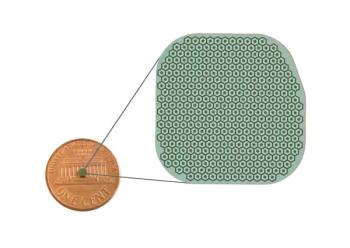
Ophthalmic Consultants of Long Island's educational meeting explores surgical, subspecialty care
The 9th biannual continuing education meeting for optometrists sponsored by OCLI introduced a new feature-roundtables.
Key Points
Long Island, NY-Having doubled in size since its inception, the 9th biannual continuing education meeting for optometrists sponsored by Ophthalmic Consultants of Long Island (OCLI) introduced a new feature this fall-"Ask the Expert" roundtable sessions-as yet another way of keeping optometrists up to date on the latest developments in eye care. This year, the forum was held here on Oct. 4.
"Ask the Expert" discussions with ophthalmic surgeons were launched in response to optometrists' requests for more personalized contact with surgeons and subspecialists. The sessions provided an opportunity for optometrists to ask questions, discuss particular cases that they had seen or referred, share ideas on how to coordinate care between optometrists and specialists, and network in a professional setting, according to Tom Burke, chief executive officer of OCLI.
Discussion areas included glaucoma and cataract surgery; cornea, cataract, and refractive surgery; cataract surgery and comprehensive care; medical and surgical diseases of the retina, macula, and vitreous; and cosmetic and reconstructive plastic surgery of the eye and face. Ten of the OCLI physicians, or about half of the professional staff, agreed to participate in the inaugural roundtable program, and more are likely to get involved in the future, Burke said.
The objective of the meetings is to offer a cross-section of information on trends and techniques in eye care that will be of interest to the optometric community. This is accomplished through a range of programs. The roundtables were followed by a series of lectures given by OCLI physicians.
Presenters included Stanley Berke, MD, who explained the advantages of using premium IOLs in patients with glaucoma, helping position optometrists to better respond to questions from their patients about this new technology.
"The primary care community in eye care is relatively uninformed in these areas. They don't do cataract surgery, so it's an opportunity to bring them up to speed on the lens technology and how [the lenses] can be used in particular patient types that they might more frequently see, such as glaucoma patients," said Tom Pannullo, chief operating officer of OCLI.
The oculoplastics lecture is always an area of high interest for optometrists. "It's not an area that they're typically exposed to or trained on," Pannullo said, adding that they're eager for reliable information as well as visuals from case studies. Peter Wong, MD, gave this year's presentation on the topic of functional lid procedures.
The retina subspecialty is rapidly changing, with short- and long-term results from clinical trials being reported regularly. Lecturer Glenn Stoller, MD, gave the optometrists an update on current treatment innovations for retinal patients.
"We do a number of FDA research studies, and we rely upon the optometric community on occasion to refer their difficult cases that might have no recourse for other treatment, and they rely on us to be a resource for them," Burke said. "Educating them about the latest ongoing clinical research gives them the ability to speak to their patients much more fluently from a primary care perspective. If they feel that it's beyond their scope of practice, they can refer to us or another retinal specialist, but at least they're informed when they speak to their patients."
Other topics on the agenda were monitoring the glaucoma patient undergoing cataract surgery, presented by Ronald Caronia, MD, and corneal disorders and dystrophy, discussed by Eric Donnenfeld, MD.
A win-win event
Approximately 200 optometrists attended the meeting. The event, which is free for optometrists, is open to the entire optometric community, not just to those who have a referral association with OCLI. Participants can earn educational credits from jurisdictions outside New York.
The OCLI doctors also look forward to the meetings. "For our own ophthalmologists, it's nice to put a name to a face," Burke said. "Often times in a referral specialty group, you get a referral and it's a piece of paper but not a name that goes with it. As much as the optometrists like getting their credits, our doctors like to see who these referral sources are, shake a hand, and say hello."
Besides the educational programs, the event included exhibitor booths featuring diagnostic equipment, frames, and other resources for their practices as well as information from professional organizations.
Newsletter
Want more insights like this? Subscribe to Optometry Times and get clinical pearls and practice tips delivered straight to your inbox.





























